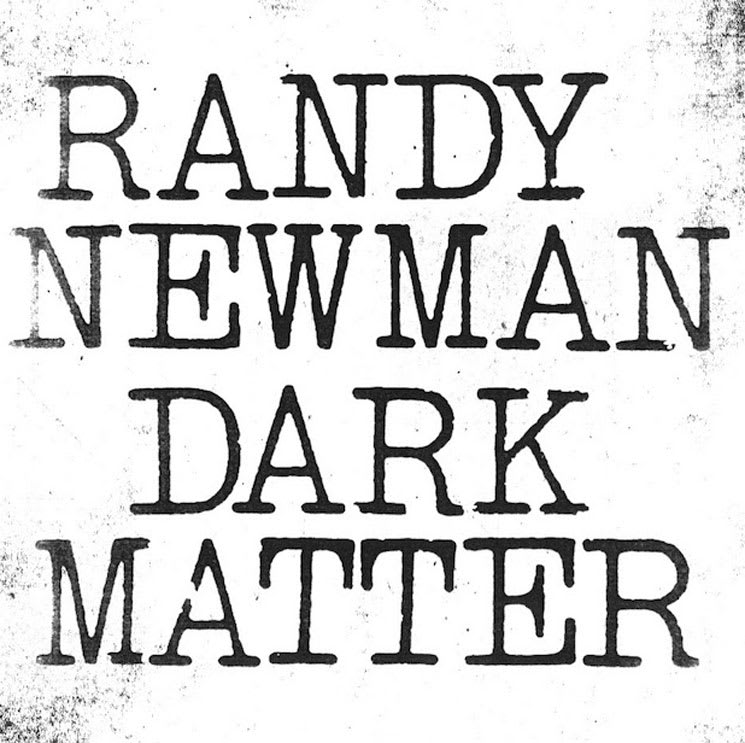There are three distinct aspects to the work of Randy Newman, and three different kinds of admirers. As a songwriting genius on par with Harry Nilsson, sardonic Newman ruled the 1970s with concept albums like Sail Away and political correctness-skewering top ten hits like "Short People." When he embraced his family legacy — his three uncles Alfred, Lionel and Emil were all acclaimed film composers — he achieved great success with scores for Ragtime, The Natural, Awakenings, Seabiscuit and many others. And to a younger generation, he's the sound of Pixar, having scored eight of their animated features and won two Best Original Song Oscars from them.
For Dark Matter, his first studio album since 2008's Harps and Angels, Newman has composed some beautifully orchestrated pop that harkens further back to Cole Porter and Tin Pan Alley. Lyrically, Newman continues to play games that amuse him, but the logical and narrative backflips might be too much this time.
He "celebrates Vladimir Putin" in sarcastic story-song "Putin," tells the story of bluesman Sonny Boy Williamson on "Sonny" and embraces his earnest romantic side on tender ballads like "She Chose Me." When he embraces sweet simplicity — as he most memorably did on Toy Story's "You've Got a Friend in Me" — Newman is at his most accessible, but that's too easy.
As an orchestral arranger, Newman loves to puzzle together the elements that create a larger whole; as a lyricist, he's also keen to play two (or more) perspectives against each other, or to undercut one character's perspective by introducing its opposite. But given his sarcastic sense of humour, it's not always evident where he's coming from. ("Sail Away," arguable his greatest accomplishment in this arena, tells the story of an American slaver trying to "sell" Africans on the benefits of getting on his ship.)
His attempt at epic storytelling on Dark Matter comes in the form of opening tale "The Great Debate." Framed as an argument between science and faith, it sets the "most expensive scientists in the world" against prominent members of the faith community. Complex ideas like the existence of dark matter, evolution and climate change are countered by a gospel choir chorus singing "I take Jesus every time." Between absolute faith and scientific doubt, the moderator sides with the convictions of believers. Of course within the song, Newman himself — known atheist and communist — is called out for creating straw men for his own didactic purposes. The whole thing is musically scattershot, and only follows a logical thread if you can entangle where Newman is being earnest and where he's not.
For longtime fans — those who delight in his sarcastic screed "I Love L.A." being embraced in earnest as an anthem for that city — this has been the sweet spot of Newman's social commentary. But "The Great Debate" may be two twists too many of his logical game theory, leaving a listener exhausted and maybe yearning for a little more sweet sincerity.
(Nonesuch)For Dark Matter, his first studio album since 2008's Harps and Angels, Newman has composed some beautifully orchestrated pop that harkens further back to Cole Porter and Tin Pan Alley. Lyrically, Newman continues to play games that amuse him, but the logical and narrative backflips might be too much this time.
He "celebrates Vladimir Putin" in sarcastic story-song "Putin," tells the story of bluesman Sonny Boy Williamson on "Sonny" and embraces his earnest romantic side on tender ballads like "She Chose Me." When he embraces sweet simplicity — as he most memorably did on Toy Story's "You've Got a Friend in Me" — Newman is at his most accessible, but that's too easy.
As an orchestral arranger, Newman loves to puzzle together the elements that create a larger whole; as a lyricist, he's also keen to play two (or more) perspectives against each other, or to undercut one character's perspective by introducing its opposite. But given his sarcastic sense of humour, it's not always evident where he's coming from. ("Sail Away," arguable his greatest accomplishment in this arena, tells the story of an American slaver trying to "sell" Africans on the benefits of getting on his ship.)
His attempt at epic storytelling on Dark Matter comes in the form of opening tale "The Great Debate." Framed as an argument between science and faith, it sets the "most expensive scientists in the world" against prominent members of the faith community. Complex ideas like the existence of dark matter, evolution and climate change are countered by a gospel choir chorus singing "I take Jesus every time." Between absolute faith and scientific doubt, the moderator sides with the convictions of believers. Of course within the song, Newman himself — known atheist and communist — is called out for creating straw men for his own didactic purposes. The whole thing is musically scattershot, and only follows a logical thread if you can entangle where Newman is being earnest and where he's not.
For longtime fans — those who delight in his sarcastic screed "I Love L.A." being embraced in earnest as an anthem for that city — this has been the sweet spot of Newman's social commentary. But "The Great Debate" may be two twists too many of his logical game theory, leaving a listener exhausted and maybe yearning for a little more sweet sincerity.
